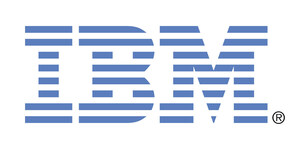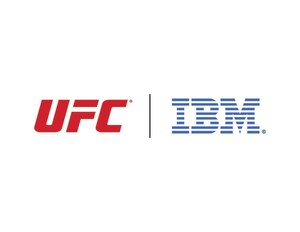ARMONK, N.Y., Jan. 17, 2012 /PRNewswire/ -- A new IBM (NYSE: IBM) survey of more than 28,000 consumers released today – the largest global survey of its kind – found that, overwhelmingly, consumers are looking for a more personalized shopping experience and are willing to share select details about themselves with their favorite retailers, in order to educate brands on exactly how, when and where to approach them. Just as we chat with our local shopkeeper, consumers are willing to dish to retailers about their media usage (75 percent); demographics (73 percent); identification, such as name and address (61 percent); lifestyle (59 percent); and location (56 percent) for a more targeted and smarter shopping experience.
(Logo: http://photos.prnewswire.com/prnh/20090416/IBMLOGO)
Consumers are telling IBM that they actually want to receive more communication – not less – but they want it to be delivered through preferred media channels and in a relevant way.
Increasingly, savvy retailers are responding to this need and using sophisticated technology to make sure every interaction with customers is spot-on, based on individual preferences, location and lifestyle. IBM's ongoing research shows that retailers must provide clear compelling reasons to shop; deliver personalized offerings and reach shoppers when and where they prefer, in order to win over their wallet share. According to the research above, consumers are more than willing to give retailers the data to make this experience possible.
At the same time, the rapid influx of digital data is posing new challenges for retailers. Customers are sharing their experiences widely online, giving them more control and influence over brands. A recent IBM CMO study of more than 1,700 chief marketing officers from 64 countries and 19 industries revealed that the majority of the world's top marketing executives recognize a critical and permanent shift occurring in the way they engage with their customers, but question whether their marketing organizations are prepared to manage the change. This shift requires new marketing approaches, tools and skills to effectively reach customers.
"The speed of technology innovation, consumer adoption and access to information has created an environment where everything is known and the consumer is truly the one in power, coalescing around shopping communities of 'we,'" said Jill Puleri, Global Retail Leader, IBM Global Business Services. "Retailers can win over this empowered consumer based on re-establishing a trusted relationship and building loyalty through improving the store environment, product assortment and store communications."
Listening to the Noise on the Wire
In addition to directly surveying consumers to understand their attitudes towards shopping, IBM also listened to how consumers are talking to one another. Using IBM Cognos Consumer Insight, a social media analysis tool, IBM reviewed more than 1.2 million documents – publicly-available videos, tweets, Facebook updates, discussion boards, blogs and newsgroups -- over a six month period to study attitudes related to sporting retailers and apparel manufacturers.
The analysis delivered significant insight into shoppers' attitudes as they relate to brands. For example, discussions around some brands focus predominantly around transaction-related terminology (price, availability, where to purchase, etc.), indicating that these brands are highly price-sensitive. On the other hand, discussions around different brands are focused on lifestyle-related terminology (self-improvement, style, love, "I can't live without this brand," etc.), indicating that these brands are less price-sensitive. With these insights, retail brands with more price sensitivity can focus their marketing efforts around promotions and sales, whereas retail brands with more of a lifestyle orientation could improve margin and focus on different segments of shoppers.
The IBM research also showed that when people are discussing brands, they will often highlight certain characteristics about a brand, for example, a shoe's construction or its sole, as opposed to its color or style. The matters in a product attribute is insightful because it can give manufacturers and retailers a better sense of what they are known for in the market, and help them capitalize on those insights in a smarter way.
How Technology Can Help
With the volume of conversations happening online, retailers need to listen and learn to their customers using sophisticated analytics technology to gain insight and adjust their marketing messages to address what they are hearing on the wire. Retailers must now deploy an evolved strategy for redefining the customer experience to deepen the brand relationship and create brand advocates who will promote the retailer to others. At the same time, retailers must improve operational efficiency in order to protect profitability and enhance agility.
IBM Retail Analytics solutions help retailers segment customers; tailor offers, promotions and communications; and create greater loyalty and retention through a seamless brand experience. IBM technology also allows retailers to analyze consumer behavior to improve their overall shopping experience and their business operations.
For more information, visit www.ibm.com/iibv.
CONTACT: Pasha Ray Dahncke, +1-914-766-2176, [email protected]
SOURCE IBM
WANT YOUR COMPANY'S NEWS FEATURED ON PRNEWSWIRE.COM?
Newsrooms &
Influencers
Digital Media
Outlets
Journalists
Opted In





Share this article